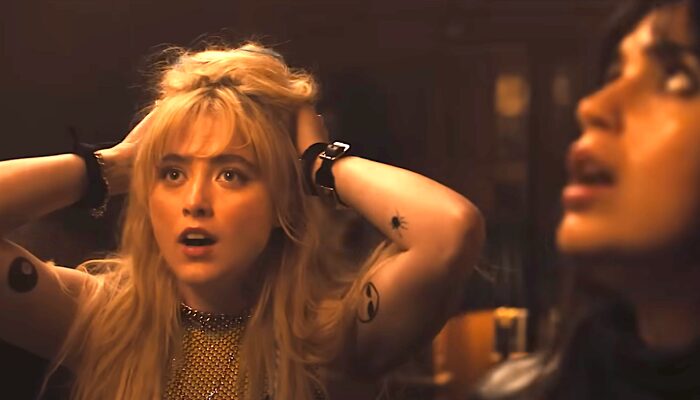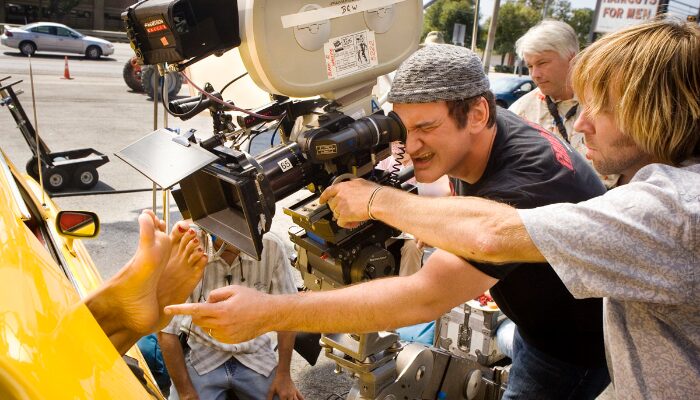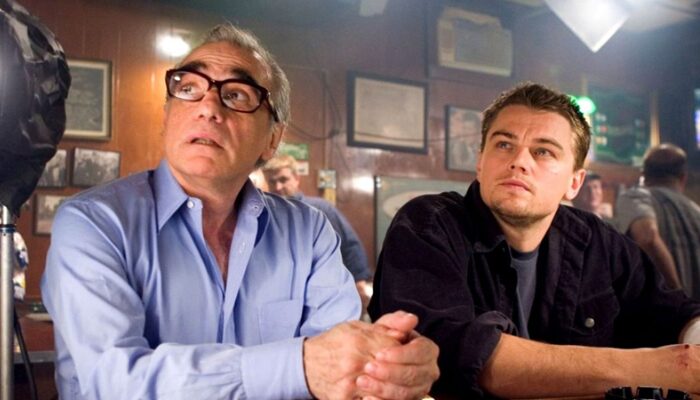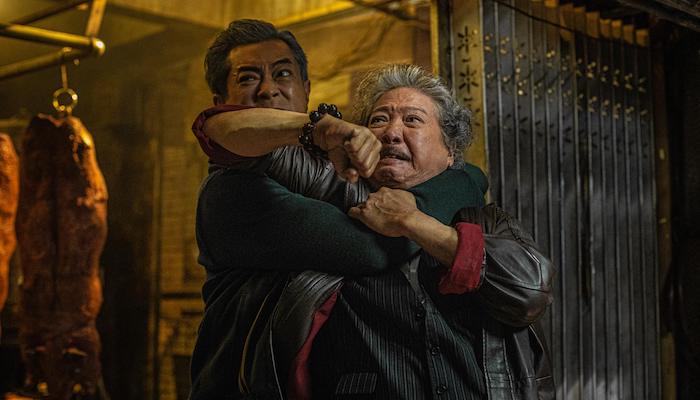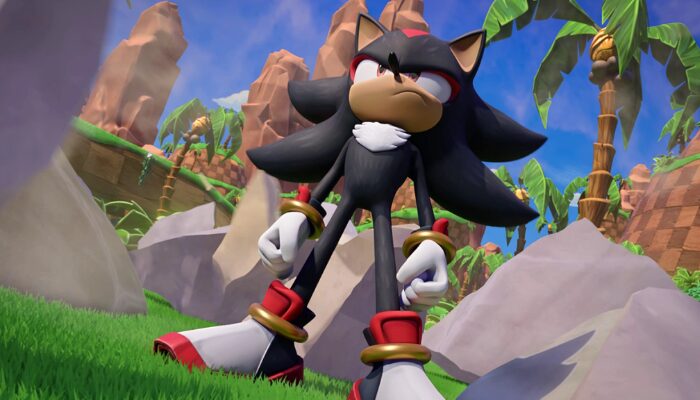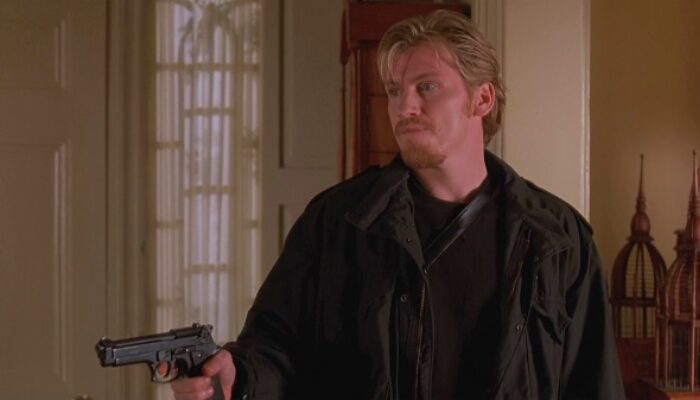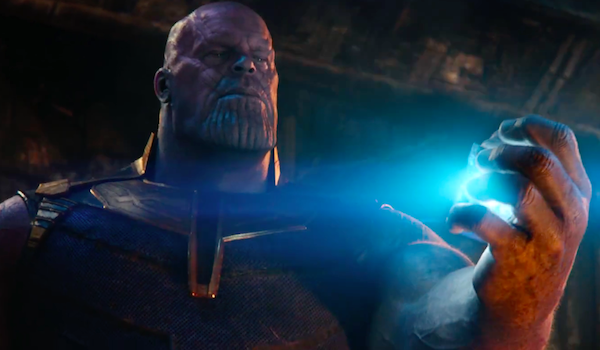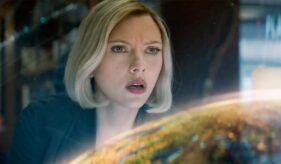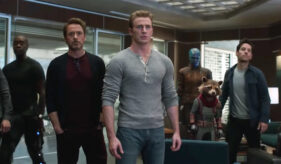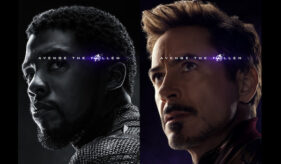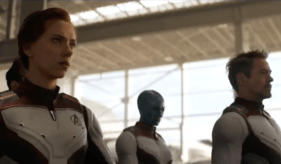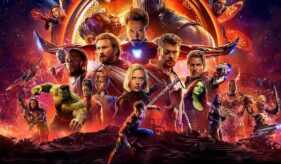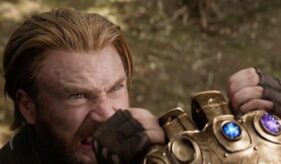Film Review: AVENGERS: INFINITY WAR (2018): Rewarding Moments, Forced Jokes, & A Hindering Formula
Avengers Infinity War Review
Avengers: Infinity War (2018) Film Review, a movie directed Anthony Russo and Joe Russo, and starring Elizabeth Olsen, Paul Bettany, Chris Hemsworth, Zoe Saldana, Scarlett Johansson, Tom Holland, Chris Evans, Josh Brolin, Chadwick Boseman, Danai Gurira, Chris Pratt, Sebastian Stan, Benedict Cumberbatch, Pom Klementieff, Peter Dinklage, Josh Brolin, Brie Larson, Vin Diesel, Karen Gillan, Bradley Cooper, Paul Rudd, Sean Gunn, Dave Bautista, Don Cheadle, Jeremy Renner, Anthony Mackie, Mark Ruffalo, and Robert Downey Jr.
Avengers: Infinity War is a comic book film of three layers. The first is the film that fans of the Marvel Cinematic Universe (MCU) want and crave. The second is a film harmed by the very formula that made the film possible. The third is a war film restrained by its own self-imposed limitations.
The Avengers: Infinity War‘s film that the viewer wants is all about the expectations that they bring with them into Avengers: Infinity War. Most want a great team-up film (like the first Avengers film) with funny jokes, good dialogue, cool battles, peril, entertaining characters, and the eighteen-film pay off, Thanos front and center as the main villain.
The viewer receives all of these during Avengers: Infinity War‘s runtime but it is not at the quality level that it should be or could be at.
Avengers: Infinity War is by no means the best film in the MCU. From an objective standpoint, its seventh, behind: Iron Man, Captain America: The First Avenger, Captain America: The Winter Soldier, Black Panther, The Avengers, Guardians of the Galaxy Vol. 2, and Spider-Man: Homecoming.
Through its “quiet” moments, Avengers: Infinity War nearly reaches the intriguing human drama standard set forth by the aforementioned films with Thanos (Josh Brolin), his portrayal, and his love / hate family dynamic with Gamora (Zoe Saldana).
This section of Avengers: Infinity War is a total surprise and a total reward for the viewer. It is so unexpected that so much thought and care is placed into the inter-family melodrama of the film’s chief villain and his ward.
The reason that this section of Avengers: Infinity War is substantive is because of the groundwork that has been laid before it in the previous Guardians of the Galaxy films. The viewer knows of the Thanos’ family dynamics going into Avengers: Infinity War but they have never seen them in real-time. This is what Avengers: Infinity War gives to the viewer. The viewer is touched when Thanos rescues young Gamora from execution (cleverly illustrating “balance” in the process), saddened when Gamora thinks she’s killed Thanos (her de facto father), causing her to weep, and left shocked when Gamora discovers that Thanos does love her, even after her numerous betrayals. Gamora’s indignant words about how Thanos failed, how there is no one in his life that he loves or that loves him are false to the viewer’s ears the moment Gamora utters them. The viewer saw how Thanos previously spoke to Gamora (like a parent whose child dislike’s them but despite that child’s anger, that child still cares about that parent and they both know it), how he favored her. When Thanos grabs Gamora’s arm, drags her to the edge of the cliff, and flings her over, it is the emotional zenith of Avengers: Infinity War.
No other emotional or dramatic moment in Avengers: Infinity War comes close.
Thanos waking up away from the Vormirian mountain, as if from a nightmare, with the Soul Stone in-hand, letting him know that he has really done the unthinkable, drives the moment home.
If Thanos was ever going to waver on his destructive path, it would have been at the top of the mountain on Vormir, in the presence of the only being in the universe that he loved, and the Stonekeeper – former Nazi Commander of Hydra Johann Schmidt / Red Skull (Ross Marquand), making a completely unexpected appearance, reborn as an intuitive and timeless sage.
This section of Avengers: Infinity War and others strive to show that Thanos is not the cold-blooded killer that he seems. That he has a specific point of view i.e. obtaining universal balance requires him to unflinching kill and to keep killing. Thanos’ off-screen actions on Nidavellir almost contradict this – Thanos makes Dwarf King Eitri (Peter Dinklage) a promise, breaks his word once he gets what he wants, instead of killing half the dwarves – obtaining his balance – Thanos kills all of them except for Eitri, whom he severely maims.
Also contradictory, in part, during Avengers: Infinity War was Rocket (Bradley Cooper), who “read” a total stranger accurately, and posed a question to Thor (Chris Hemsworth) that needed to be asked.
When Rocket says in Avengers: Infinity War that “its time to be the captain,” the viewer thinks that he is joking. What follows this statement is one of the most narratively gratifying moments in the film – the emotional toll of constant warfare and death on Thor and his outlook on life. Thor always seemed like a jovial rock that nothing phased. As a demi-god, Thor always seemed above it all, even when he (to paraphrase) was a “vain, greedy, cruel boy…[and] unworthy.” In Avengers: Infinity War, the human being, the one on the shore of war, looking out on the bloodshed beyond, shined out of Thor for a few minutes. It was Hemsworth’s best acting in the film and may be the moment when Thor went from a one-dimensional character to a two or three dimensional person.
This scene in Avengers: Infinity War also shows growth within Rocket. The spiteful, laconic prankster has a another side – the thoughtful leader who recognizes when its time to ask a question and listen. It’s unfortunate that jokey Peter Quill / Star-Lord (Chris Pratt), the titular leader of the Guardians of the Galaxy, does not have this Janus-like attribute. Perhaps, just perhaps, Star-Lord only ‘thinks’ he is the Guardians’ leader. Perhaps the heart and soul of the team resides in another.
For all of its emotional pluses, Avengers: Infinity War is not a perfect film. It’s not even close. Like all Marvel films, following the Marvel formula, Avengers: Infinity War contains moments of levity so that the on-screen carnage does not override its sense of fun. Like ill-fated Star War: The Last Jedi, however, Avengers: Infinity War jokes seem forced in certain instances. Half the jokes in Avengers: Infinity War don’t land while others painfully go on long past their humor self-life e.g. the Drax the Destroyer (Dave Bautista) joke “How long have you been standing there?” “An hour.”
Avengers: Infinity War would be a tighter film without so many jokes, especially those that are luke-warm humorous.
One never expects reality in a comic book film, even from those purported to be grounded in it. Avengers: Infinity War is no exception. When trained soldiers enter and then run into an active battlefield to fight a horde of monsters with claws and fangs and do not bother to bring a side arm or a long rifle (besides Bucky, Rocket, War Machine, and Falcon), it doesn’t just defy reality, it defies reason. Why would you want to fight alien monsters in hand-to-hand when you could shoot and kill them from fifty feet away e.g. Lone Survivor? Since this nonsense is common place in Marvel films, i.e. the film actively working against its own reality and self-interest, that this observation is relegated to being par-for-the-course but it shouldn’t be.
The fights scenes in Avengers: Infinity War are what one would expect: very pretty, very colorful, and very destructive without Michael Bay‘s signature pyrotechnic flare.
The majority of the fights scenes in Avengers: Infinity War have no passion, no soul to them because the people fighting, for the most part, are strangers to each other.
Thanos versus Dr. Bruce Banner / Hulk (Mark Ruffalo) showed Hulk’s utter lack of hand-to-hand combat training in direct contrast to Thano’s practiced movements and close-quarters, warfare experience.
Besides the aforementioned and brief Gamora versus Thanos fight, the axe-in-the-chest comeuppance for Thanos followed by the sublimely delivered line “You should have gone for the head,” the only other fight scene of note in Avengers: Infinity War was between Anthony “Tony” Stark / Iron Man (Robert Downey Jr.) and Thanos, which results in Iron Man being critically injured. Stark being able to automatically heal himself with nanites takes away all the stakes and dramatic momentum that is built up through the Iron Man and Thanos’ fight scene. This situation is emblematic of why a superhero film will never achieve true cinematic greatness. No matter the special effects, the grandeur of the choreography, the fabulous attire, and the quirky, endearing nature of the scripts, when your film resides in the Safe Zone, it avoids entire narrative avenues, turn of events, and sumptuous surprises. Had Stark been killed, his corpse thrown at Captain America’s feet by Thanos during the third act of Avengers: Infinity War, it would have been a defining moment in Avengers: Infinity War i.e. the stakes are real and anyone can die. Instead, Avengers: Infinity War opts for nanties, popcorn, and emptiness during these key moments in the film.
The final battle between Thanos and the superheroes on Earth during the finale of Avengers: Infinity War is plain, ordinary, and a let-down considering the power inherent in the Infinity Gauntlet. Thanos can literally done anything his genius intellect (completely left out of the film, hence his lack of imagination) comes up with and all he does with the Gauntlet is deflect on-coming attackers. When one considers the “colorful” ways he dispatches opponents in The Infinity Gauntlet comic book with that very same Gauntlet and power, the film incarnation shows no creativity on the part of screenwriters Christopher Markus and Stephen McFeely, especially for a being that sees a truth (through his perception of available facts) no one else in the universe can see (or is willing to acknowledge and do anything about).
Avengers: Infinity War‘s ending is the solemn event that almost never happens in a happy-go-lucky, PG-13, comic book film – the bad guy actually wins (at least for the moment) and kills half the population of the universe (though imagine if that moment was handled like in The Leftovers or even more affecting, what if all the people that disintegrated, instead, just dropped dead on the spot? It would have taken brave screenwriters to write that moment and an even bravery movie studio to film it). What is filmed served its limited, emotional purpose, especially Spider-Man’s death. The young Gamora scene with a pergola, her asking Thanos “Is it done?”, surrounded by endless red water (analogous to blood and a new dawn), during that key moment in Avengers: Infinity War, is a perfect crystallization for what has just happened – a monumental act, through the loss of someone precious, that is singular, seminal, and horrific on a scale known life has never seen.
Rating: 7/10
Leave your thoughts on this Avengers: Infinity War review and the film below in the comments section. Readers seeking more film reviews can visit our Movie Review Page, our Movie Review Facebook Page, and our Movie Review Google+ Page. Want up-to-the-minute notifications? FilmBook staff members publish articles by Email, Twitter, Tumblr, Google+, and Facebook.
Related Articles
FilmBook's Newsletter
Subscribe to FilmBook’s Daily Newsletter for the latest news!

